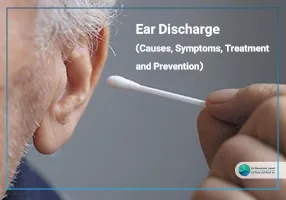Snoring: Causes, Risks, and Effective Treatments
Snoring isn’t just an irritating sound that keeps your partner awake—it’s a common issue affecting nearly half of adults at some point. It can disrupt sleep, strain relationships, and sometimes signal deeper health concerns, like obstructive sleep apnea. Crafted with insights from an experienced ENT specialist, this guide explores why snoring happens, its risks, and practical ways to address it. Whether you’re looking to help yourself or a loved one, you’ll find clear, actionable advice to improve sleep and overall health.
 We’ll cover the science behind snoring, its impact on well-being, and solutions ranging from simple lifestyle changes to advanced treatments. You’ll learn how to identify the cause, when to seek help, and what options can restore quiet nights. Let’s dive in.
We’ll cover the science behind snoring, its impact on well-being, and solutions ranging from simple lifestyle changes to advanced treatments. You’ll learn how to identify the cause, when to seek help, and what options can restore quiet nights. Let’s dive in.
What Causes Snoring?
Snoring occurs when air struggles to flow through your nose or throat during sleep, causing tissues to vibrate and produce that familiar sound. Occasional snoring is normal, but loud or persistent snoring can disrupt sleep and may point to obstructive sleep apnea, a condition where breathing pauses briefly at night, potentially lowering oxygen levels and increasing health risks.
This issue doesn’t just affect the snorer—it can keep partners or family members awake, leading to tense mornings. Understanding the root of snoring is the key to finding effective solutions. Let’s look at who’s most likely to be affected.
Who’s Most Likely to Snore?
Snoring can happen to anyone, but certain factors make it more likely:
-
Men: Their airway structure makes them more prone to snoring than women.
-
Older Adults: Throat muscles weaken with age, increasing the risk.
-
Excess Weight: Extra tissue around the neck can narrow airways.
-
Anatomical Traits: Issues like a deviated septum or large tonsils can obstruct airflow.
-
Family History: Genetics can play a role in snoring or sleep apnea.
Children can snore too, often due to enlarged tonsils or adenoids, which may cause behavioral issues if untreated.
Why Does Snoring Happen?
 Snoring stems from restricted airflow, but the reasons vary, from physical traits to daily habits.
Snoring stems from restricted airflow, but the reasons vary, from physical traits to daily habits.
Your Body’s Role
Your anatomy can set the stage for snoring. A thick soft palate, a long uvula (the dangling tissue at the back of your throat), or enlarged tonsils can crowd the airway. Nasal problems, like a crooked septum or swollen tissues inside the nose, also block airflow. Extra weight adds tissue around the throat, acting like a bottleneck that amplifies vibration.
Habits That Worsen Snoring
Daily choices can make snoring worse. Drinking alcohol before bed relaxes throat muscles, increasing the chance of airway collapse. Sleeping on your back lets gravity pull tissues downward, clogging the airway. Lack of sleep or allergies can also intensify snoring by loosening muscles or congesting the nose.
Health Risks of Snoring
While occasional snoring may seem harmless, chronic snoring—especially with sleep apnea—can lead to serious issues. Disrupted sleep leaves you tired and unfocused during the day, sometimes causing irritability or low mood. Over time, it can strain your heart, raising the risk of high blood pressure or cardiovascular problems.
In children, untreated snoring may trigger behavioral challenges, like hyperactivity or difficulty in school. Poor sleep also increases the risk of accidents, whether at work or while driving. If you wake up gasping or choking, it’s time to see a specialist.
Diagnosing Snoring
To determine if snoring is harmless or linked to a condition like sleep apnea, a proper diagnosis is essential. An ENT specialist will review your symptoms, lifestyle, and family history, then examine your nose, throat, and mouth for physical issues. A sleep study, which monitors breathing and oxygen levels overnight, can confirm sleep apnea. Tools like nasal endoscopy or imaging scans can pinpoint blockages, such as a deviated septum.
Early diagnosis helps prevent complications and guides you toward the right treatment.
How to Treat Snoring
Snoring is manageable, with solutions ranging from simple adjustments to advanced procedures, depending on the cause.
Lifestyle Changes That Help
 For mild snoring, small changes can make a big difference:
For mild snoring, small changes can make a big difference:
-
Lose Weight: Shedding extra pounds reduces throat tissue, opening airways.
-
Avoid Alcohol Before Bed: It relaxes muscles too much, so skip it a few hours before sleep.
-
Sleep on Your Side: This prevents gravity from closing your airway.
-
Manage Allergies: Clear nasal congestion with sprays or medications.
Non-Surgical Options
For persistent snoring, non-invasive treatments can help:
-
Mouthguards: Custom devices shift your jaw or tongue to keep airways open.
-
CPAP Machines: These deliver steady airflow through a mask, ideal for sleep apnea.
-
Nasal Aids: Strips or dilators improve airflow through the nose.
Note: Avoid unproven “snoring cures” online. Many lack scientific backing and don’t address the root cause. Consult a doctor for reliable options.
Surgical Solutions
If other methods fall short, surgery may be an option. Procedures like UPPP (removing excess throat tissue) or radiofrequency treatment (shrinking tissues) can widen airways. Septoplasty corrects a deviated septum, while other surgeries adjust the tongue or jaw to prevent blockages. A specialist will tailor the approach to your needs.
Snoring in Children
 In kids, snoring often comes from enlarged tonsils or adenoids. Surgery to remove them can resolve the issue, but untreated snoring may lead to behavioral problems or learning difficulties. If your child snores regularly, a specialist evaluation is crucial.
In kids, snoring often comes from enlarged tonsils or adenoids. Surgery to remove them can resolve the issue, but untreated snoring may lead to behavioral problems or learning difficulties. If your child snores regularly, a specialist evaluation is crucial.
Practical Tips for Living with Snoring
Beyond treatments, these strategies can ease the burden:
-
Improve Sleep Environment: White noise machines or earplugs help partners cope.
-
Stay Consistent: Regular checkups ensure treatments keep working.
-
Live Healthier: A balanced diet and exercise lower snoring risk.
When to See a Specialist
If your snoring is loud, persistent, or accompanied by gasping, choking, or daytime fatigue, see an ENT specialist promptly. Early action can prevent bigger issues and restore restful sleep.
Snoring is more than a minor bother—it can signal health concerns like sleep apnea and affect your physical and emotional well-being. By understanding its causes and exploring solutions, from lifestyle tweaks to surgery, you can reclaim peaceful nights. An ENT specialist can guide you to the best approach for you or your loved ones.
Frequently Asked Questions (FAQ)
Not always. Many people snore occasionally, but only some chronic snorers have sleep apnea, where breathing pauses during sleep. If you’re constantly tired or gasping at night, see a doctor.
Loud snoring can suggest a problem, but breathing pauses or effort are more concerning than volume. If someone notices you stop breathing, a sleep study is a good idea.
Use a voice-activated recorder or sleep-tracking app to capture nighttime sounds. These can help you figure it out if no one’s around.
For mild cases, losing weight, avoiding alcohol, or sleeping on your side can help. Chronic snoring often needs a doctor’s evaluation to address the cause.
Yes, men are more likely to snore due to airway differences, but women can snore too, especially during pregnancy or after menopause. Their symptoms may be subtler, like fatigue without loud snoring.
No, many cases improve with lifestyle changes or devices like CPAP. Surgery is for persistent cases or structural issues, and a specialist can recommend the best path.
Related Articles
Online Consultation, Directly with Dr. Saeedi
Ask your question via WhatsApp, and if you wish, Send your photo for a more accurate assessment.
Free Consultation on WhatsApp





